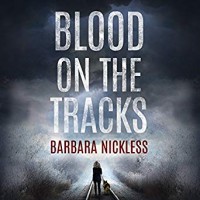
This is one of those books where I was disappointed by the end of chapter one. It's a framing chapter, setting up the murder around which the rest of the book will revolve and introducing the main suspect.
The suspect is interesting and the potential pathos is high but it was told from a distance, never really letting me inside the suspects head. It read more like the notes I might give an actor who wants to play this part. The text was a little heavy-handed, leaving me in no doubt about what I was supposed to feel but not actually making me feel it.
It wasn't a long chapter, so I moved on to the next, already wondering if this book would be another for my DNF pile and asking myself if I was becoming too picky or maybe I was just jaded.
Then I met Sydney Rose Parnel and I wanted to ask the author and the editor: "Why didn't you start here?".
Sydney is compelling. She's an ex-soldier who spent fourteen months in Mortuary Affairs in the US Army, scooping up human remains in Iraq. Now she's a railroad cop back in her home city, Denver.
I don't know much about her yet but I already know that I want to know a lot more. Now the writing is deft, letting the reader discover and guess rather than signposting meanings. We see her and her ex-army service dog out amongst the homeless she's supposed to roust but who she also feeds. Then we see her at the crime scene. Her approach is credible, pain-filled, more than a little off-centre in a PTSD kind of way and completely human.
So now I want to read this and i'm hoping I've found another series.
So why not start here?
I can see the temptation for the writer to start at the beginning. The writer needs to imagine that beginning in detail in order to write the rest. They probably needed to write this chapter. I would hope that an editor would ask the question: does the reader need to start here?
Anyway, it's an example of where judging a book from its first chapter is about as much use as judging it from the publisher's summary.










